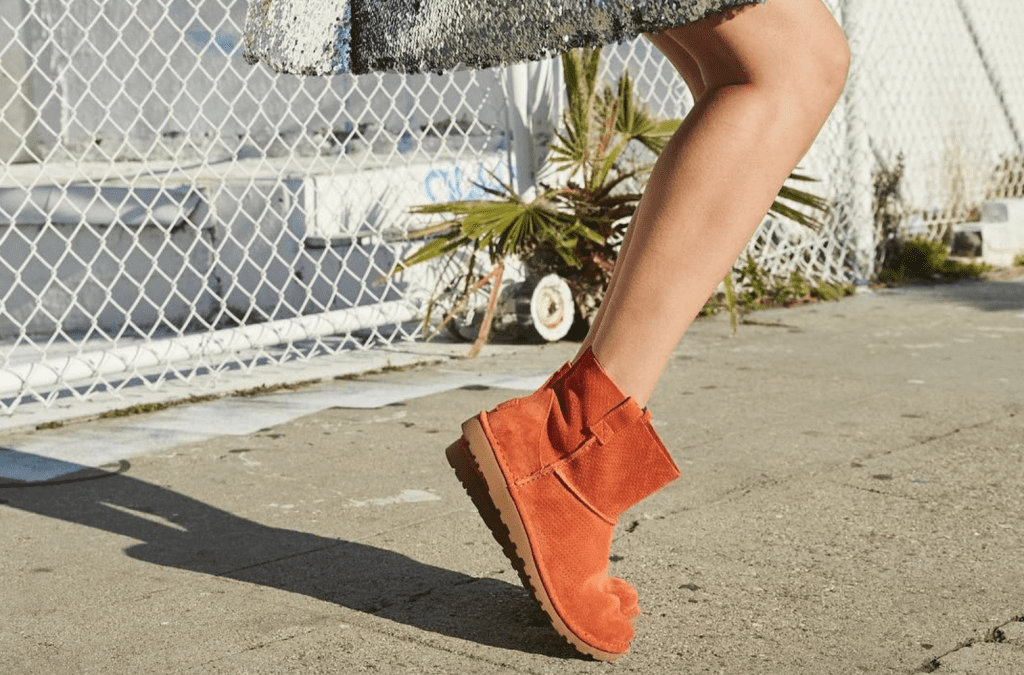A “tiny” Australian boot-maker has been hit with a $450,000 loss following a fight with American footwear giant UGG. After a four-day trademark trial in a federal court in Chicago, a jury found that by selling 12 pairs of sheepskin-lined boots bearing the “ugg” name to consumers in the U.S. between 2014 and 2016 via its e-commerce site, Sydney-based Australian Leather had willfully infringed the trademark of Deckers-owned UGG. Australian Leather is also potentially on the hook for millions of dollars in legal fees stemming from the 3-year long lawsuit.
Deckers first filed suit in March 2016, asserting that Australian Leather’s “virtually identical” boots run afoul of its valuable trademark rights in the word “UGG”, as well as its design patent, and asked a U.S. federal court to force the much smaller rival to limit the sales of its Australian-made boots to Australia and New Zealand in order to not interfere with the sales of UGG’s boots and its trademark-protected name.
Counsel for Australian Leather owner Eddie Oygur pushed back against Deckers’ claims, arguing that the company may have legal rights in the name in the U.S. and very well may have popularized the boot in the global market. However, in Australia, he asserted, the word “Ugg” is little more than a generic term used to describe this exact type of Australian boot, and thus, not subject to trademark protections. As such, Mr. Oygur argued that UGG – which brings in more than $1 billion in revenue each year in connection with its collection of boots – should not be permitted to maintain a global monopoly over the term.
The lawsuit has spawned a bi-national battle with Oygur taking his case before the Australian Competition and Consumer Commission in 2016, and alleging that Deckers made false and misleading representations by using the name UGG Australia, when its products are actually made in China. When the Commission sided with Oygur, UGG agreed to drop “Australia” from its name and simply operate as UGG.
 image via Australian Leather
image via Australian Leather
Meanwhile, on U.S. soil, the Australian Leather founder has had far less luck. In September 2018, an Illinois federal judge rejected his argument that “ugg” is a generic term for a kind of sheepskin boot originating in Australia from the 1960s surfing community, thereby, confirming UGG’s trademark rights in the name and permitting the infringement case to go forward.
Deckers has maintained that “Ugg” – for which it maintains an arsenal of trademark registrations dating back to the 1980’s following its acquisition of the brand in 1995 from Australian surfer Brian Smith and his partner Doug Jensen – is not a generic term, but “a famous mark.”
The case is hardly over; there is an impending non-jury trial at play in connection with Deckers’ UGG-specific design patents. As noted in a filing by Australian Leather early this month in support of eliminating the design patent issues from the main jury trial, “The parties have stipulated that each of the four Deckers design patents in this case is valid and enforceable, and was infringed by Defendants.” A bench trial before the judge will determine whether such infringement was willful.
Also still up for debate is whether Oygur and Australian Leather as the losing parties will be forced to pay Deckers’ legal bills, including the cost of attorneys, a figure that could be well into the millions. In order to force the defendants to foot the bill, Deckers will have to show that the case at hand is “exceptional,” meaning that it “stands out from others with respect to the substantive strength of a party’s litigating position (considering both the governing law and the facts of the case) or the unreasonable manner in which the case was litigated.”
As for Oygur, he plans to appeal the court’s decision.
“The term ‘ugg’ should never have been trademarked. It is a generic term that should have been protected by Australian governments in the past,” Australian lawyer and former senator Nick Xenophon said this week. Mr. Xenophon says that he hopes the Australian Prime Minister Scott Morrison and Labor Leader Bill Shorten will back Oygur’s impending appeal.
* The case is Deckers Outdoor Corporation v. Australian Leather Pty Ltd, 1:16-cv-03676 (N.D.Ill.).











